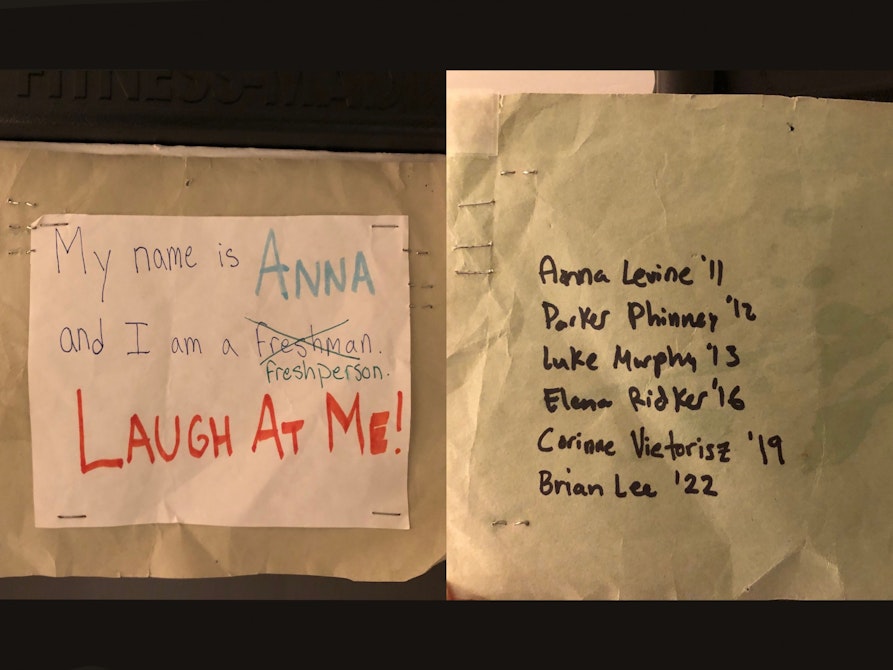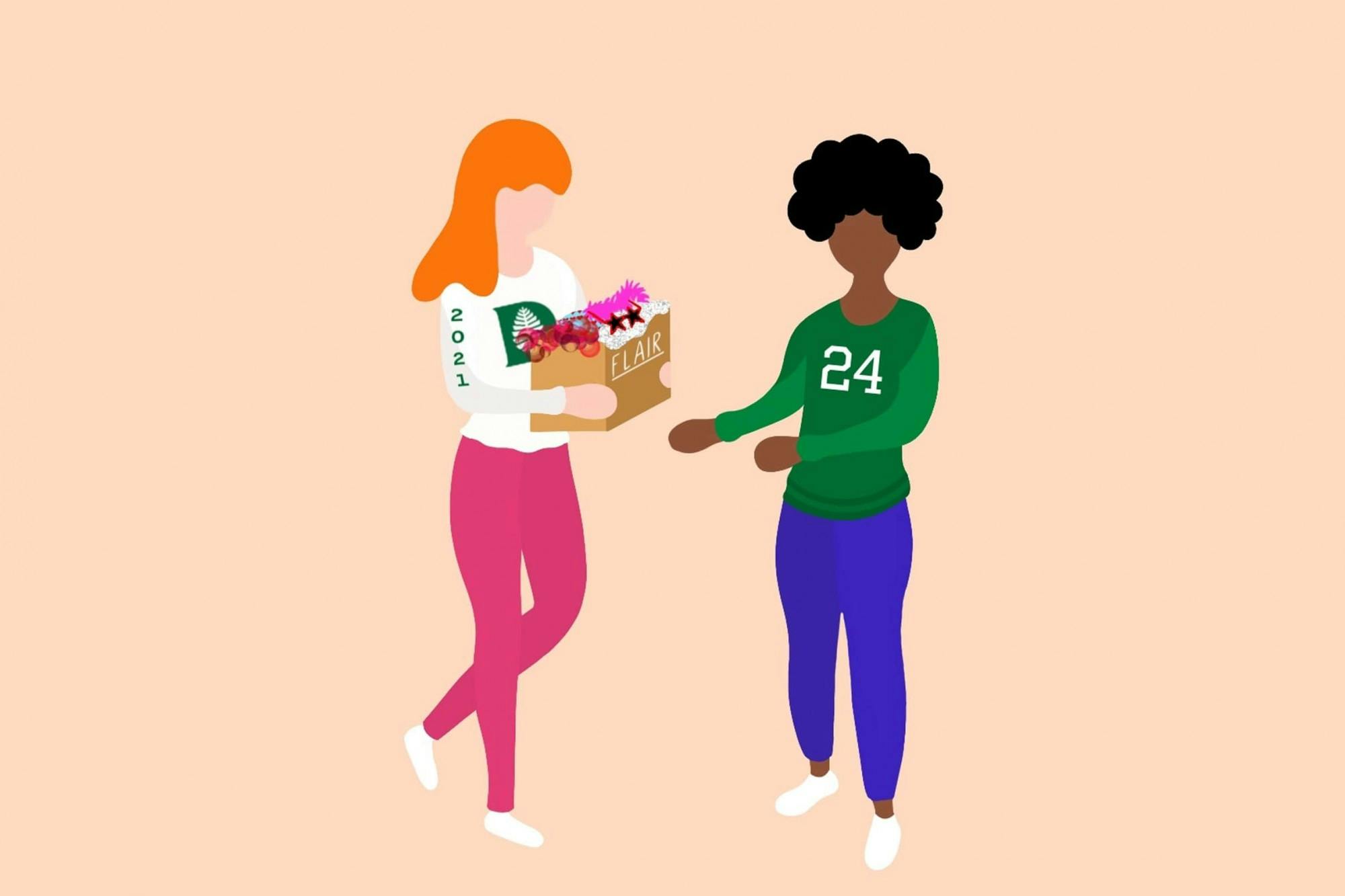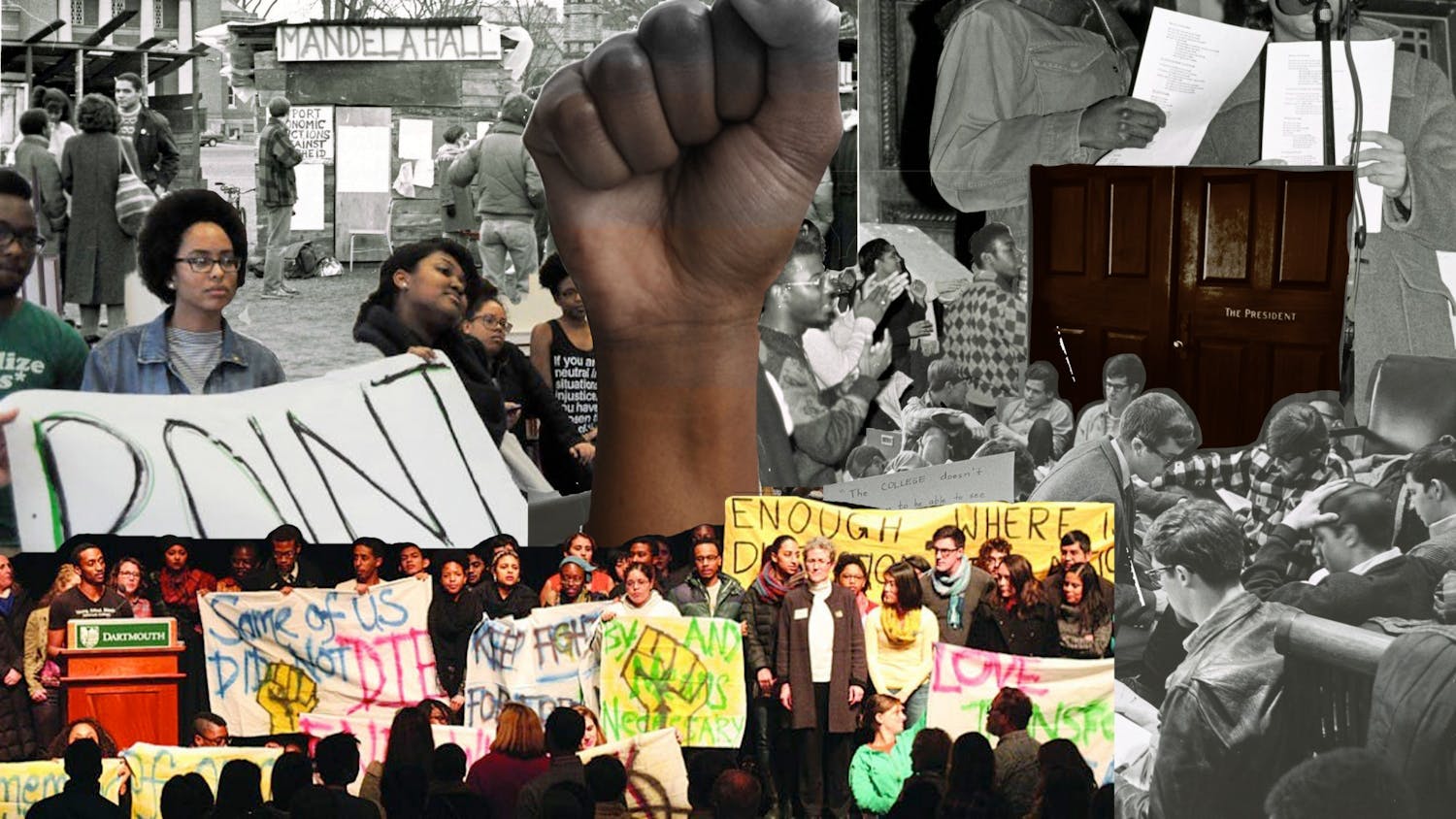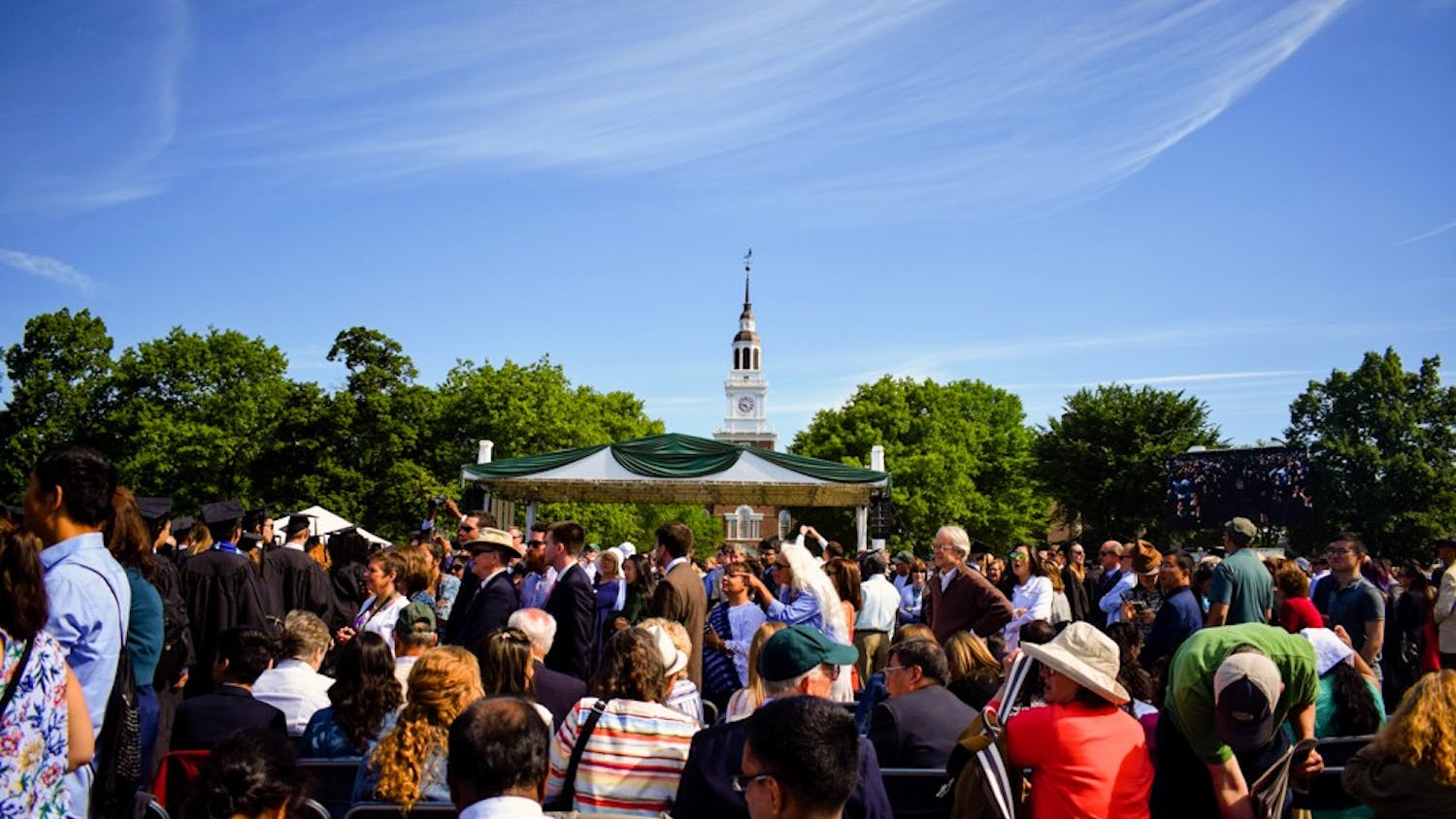A normal Dartmouth spring means studying outside, Green Key and graduation, but there’s another spring tradition that encapsulates Dartmouth culture: bequests. All types of campus clubs and organizations share this tradition of passing down items between its members. Ceremonies vary, but every spring, seniors gather up items they wish to pass down and “bequest” — Dartmouth students tend to use “bequest” as both a noun and verb, though, technically, the verb is “bequeath” — them to younger members of their various organizations. It’s equal parts history and hilarity as meaningful years-old items sketched with alumni names change hands — followed by a dinosaur onesie from Walmart.
Alana McClements ’22 recalled the Ledyard Canoe Club bequest ceremony of her freshman spring. Members of the Class of 2019 gathered on the roof of the Ledyard Canoe Clubhouse with their bags of flair and gave short speeches for each item. McClements described the ceremony as “kind of like an award system,” where club members received bequests for real, personal qualities. For example, a sunny yellow shirt might be given to an especially positive person. Bequests are also received in honor of funny superlatives, like the Ledyardite who swam the most on the club’s annual whitewater paddling trip after accidentally flipping their kayak over and failing to get back up.
McClements recalled an unusual bequest she received: a “ridiculously large” sign from Tremblant, a ski resort in Canada, that had been passed down from students in both Ski Patrol and Ledyard.
“It's been a huge inconvenience to store, but very fun,” McClements added.
This affectionate exasperation highlights a common theme: bequests are often strange, cumbersome items that often have years of memories associated with them.
“They’re meaningful because of who gives them to you,” John Perrotti ’21 said of the many random t-shirts handed down to him by his Alpha Chi Alpha fraternity brothers.
Perrotti’s favorite bequest is a 1988 homecoming shirt that has been passed through Alpha Chi members for decades; he described the bequest as a “really cool historical artifact.” While Alpha Chi members bequest dozens of different items each year, Perrotti said that the fraternity emphasizes historical bequests over quirky flair pieces to increase inter-class connection.
Brian Lee ’22 received a mystifying bequest from improv group Dog Day Players that is both eccentric and historical: a piece of construction paper that reads “My name is Anna and I am a freshman. Laugh at me,” except “freshman” is crossed out and replaced with “freshperson.”

Lee said that not all of his bequests are valuable to him in a logical sense, but they’re nonetheless precious.
“One shirt [I was bequested] has a bunch of initials that don’t really mean anything — I’ve never met these people — but I know for a fact that someone in Dog Day wore it at some point, and it just makes me not want to lose the shirt,” Lee said. “It's more than just the object; you don't want to lose that piece of history and that spirit of the club.”
Do I want a piece of construction paper with a statement that makes no sense to me? Not particularly. But I imagine Anna at Dartmouth in 2011 cracking up at some inside joke and writing it on a paper, and I smile: bequests create laughter and connection years apart.
Perrotti agreed, noting that bequests “tie students to alumni.”
“Having that connection between classes is important,” Perrotti said. “We try to be a very alumni-connected school, and bequests add to that feeling.”
When discussing historical value, it’s natural to think only of past alums, but bequests are history in the making — new items are put into circulation every year. According to Lee, one of Dog Day’s new bequests this year is not an item, but an activity started by two members of the Class of 2021. The two were roommates and had termly, season-themed photoshoots; the club wants to make that a tradition.
While bequests aim to foster a greater sense of community within organizations, McClements pointed out that a side effect of club bonding is exclusion, especially in bigger groups. McClements noted that bequest ceremonies can highlight favoritism within clubs, as there will inevitably be some members that receive more coveted bequests than others. The public speech that accompanies the bequest in Ledyard can enhance those feelings of favoritism and exclusion. The alternative is to give bequests privately, which McClements experienced last spring due to the pandemic. In lieu of a public bequest ceremony, a member of the Class of 2020 came to her house to give her a bequest paired with a speech.
“It's an interchange between two people, and it's nice when it's personal like that, so I think that would get rid of the spectacle-like component,” McClements said. “But if you did it in private, it would also lose the component of club history being passed down.”
McClements pointed to a significant bequest: the jacket of an influential female Ledyardite that, for many, represented women’s power in the club. That bequest might have lost some of its might if it were given privately.
“Sometimes bequests are slightly socially stressful, but I haven't experienced enough stress to make me really think it's an issue that needs to be addressed or something that needs to be changed,” McClements said. “It’s just something to be aware of.”
COVID-19 disrupted public ceremonies, and some club members wondered if the pandemic also stripped them of some would-be bequests.
Last spring term, students quickly scattered across the world, and bequests were tucked away in campus storage or parents’ basements. According to Perrotti, it felt as if “bequests got lost in time.”
McClements added that as campus begins to look more normal, upperclassmen will need to work to restore past club traditions like bequests.
“I think part of the work we're going to have to do, especially as seniors next year, is bring back club culture and get people really excited in a way that I just don't think was possible with COVID,” McClements said.
As we return to a more familiar Dartmouth, this tradition is probably not high on anyone’s list of post-COVID-19 priorities, but I look forward to future bequests that will change hands instead of gathering dust. Perrotti will bequest a unique tiger painting given to him by his dad, Lee will bequest a sign that says “Clean up after your dog. It's the law” with an instructional illustration and McClements will bequest her iconic crown that tops off many flair outfits. These items are small pieces of students’ lives, gathering fingerprints and stories for their future owners. I hope they win a smile from a ’32 ten years from now.




